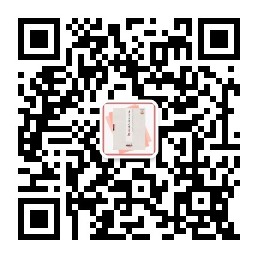Journal of Guangdong University of Technology ›› 2023, Vol. 40 ›› Issue (04): 31-36.doi: 10.12052/gdutxb.220111
• Computer Science and Technology • Previous Articles Next Articles
Research on Inductive Transfer Learning Model Based on Self-paced Learning Strategy
Zhang Yu1, Liu Bo2
- 1. School of Computer Science and Technology, Guangdong University of Technology, Guangzhou 510006, China;
2. School of Automation, Guangdong University of Technology, Guangzhou 510006, China
CLC Number:
- TP301
| [1] BENGIO Y, LOURADOUR J, COLLOBERT R, et al. Curriculum learning[C]//Proceedings of the 26th Annual International Conference on Machine Learning. Montreal: ACM, 2009, 382: 41-48. [2] KUMAR M, PACKER B, KOLLER D. Self-paced learning for latent variable models[C]//Advances in Neural Information Processing Systems 23: 24th Annual Conference on Neural Information Processing Systems 2010. Vancouver: Curran Associates, Inc., 2010: 1189-1197. [3] BENGIO Y, COURVILLE A C, VINCENT P. Representation learning: a review and new perspectives[J]. Journal of Electronic Imaging, IEEE Transactions on Pattern Analysis and Machine Intelligence, 2013, 35(8): 1798-1828. [4] WANG Y, GAN W, YANG J, et al. Dynamic curriculum learning for imbalanced data classification[C]//Proceedings of the IEEE/CVF International Conference on Computer Vision. Seoul: IEEE, 2019: 5017-5026. [5] SOVIANY P, TUDOR R, IONESCU. Curriculum learning: a survey[J]. International Journal of Computer Vision, 2022, 130(6): 1526-1565. [6] YIN T, LIU N, SUN H. Self-paced active learning for deep CNNs via effective loss function[J]. Neurocomputing, 2021, 424: 1-8. [7] YU H, WEN G, GAN J. Self-paced learning for K-means clustering algorithm[J]. Pattern Recognition Letters, 2020, 132: 69-75. [8] XIAO Y, YANG X, LIU B. A new self-paced method for multiple instance boosting learning[J]. Information Sciences, 2020, 515: 80-90. [9] PAN S J, YANG Q. A Survey on transfer learning[J]. IEEE Transactions on Knowledge and Data Engineering, 2010, 22(10): 1345-1359. [10] CRAWFORD M, KHOSHGOFTAAR T M. Using inductive transfer learning to improve hotel review spam detection[C]//2021 IEEE 22nd International Conference on Information Reuse and Integration for Data Science (IRI). Las Vegas, NV: IEEE, 2021: 248-254. [11] YUN H, ZHANG C, HOU H, et al. An adaptive approach for ice detection in wind turbine with inductive transfer learning[J]. IEEE Access, 2019, 7: 122205-122213. [12] DENG Z, JIANG Y, WANG S, et al. Enhanced knowledge leverage-based TSK fuzzy system modeling for inductive transfer learning[J]. ACM Transactions on Intelligent Systems and Technology, 2016, 8(1): 11: 1-11: 21. [13] 黎启祥, 肖燕珊, 郝志峰, 等. 基于抗噪声的多任务多示例学习算法研究[J]. 广东工业大学学报, 2018, 35(3): 47-53.LI Q X, XIAO Y S, HAO Z F, et al. An algorithm based on multi-task multi-instance anti-noise learning.[J]. Journal of Guangdong University of Technology, 2018, 35(3): 47-53. [14] XIAO Y, FENG J, LIU B. A new transductive learning method with universum data[J]. Applied Intelligence, 2021, 51(8): 5571-5583. [15] XIAO F, PANG L, LAN Y, et al. Transductive learning for unsupervised text style transfer[C]// Proceedings of the 2021 Conference on Empirical Methods in Natural Language Processing. Punta Cana: Association for Computational Linguistics, 2021, 2510-2521. [16] ZHAO P, WU G, YAO S, et al. A transductive transfer learning approach based on manifold learning[J]. Computing in Science and Engineering, 2020, 22(1): 77-87. [17] MICHAU G, FINK O. Unsupervised transfer learning for anomaly detection: application to complementary operating condition transfer[J]. Knowledge-Based Systems, 2021, 216: 106816. [18] CHEN X, YANG R, WEN H. Transfer learning with unsupervised domain adaptation method for bearing fault diagnosis[C]//2021 CAA Symposium on Fault Detection, Supervision, and Safety for Technical Processes (SAFEPROCESS). Chengdu: IEEE, 2021: 1-6. [19] ROCHA G, CARDOSO H L. Improving transfer learning in unsupervised language adaptation[C]//International Conference on Artificial Neural Networks. Bratislava: Springer, 2021, 12895: 588-599. [20] MEI B, XU Y. Multi-task least squares twin support vector machine for classification[J]. Neurocomputing, 2019, 338: 26-33. |
| [1] | Wang Dan-rong, Mo Yan. Support Vector Machines Based Method to Solve Discrete Linear Differential Equations [J]. Journal of Guangdong University of Technology, 2020, 37(02): 87-93. |
| [2] | ZHU Yan-fei1,TAN Hong-zhou2,ZHANG Yun1. Blind Nonlinear System Identification Based on LS-SVM [J]. Journal of Guangdong University of Technology, 2007, 24(2): 76-79. |
|
||



